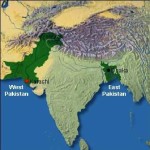.
.
.
.
.
.
.
.
.
.
.
.
.
.
.
.
.
.
.
.
.
.
.
Our Announcements
Sorry, but you are looking for something that isn't here.
Posted by admin in INDIA EXPOSED, INDIA FRAUD, INDIA IMAGE SPIN MASTERS, INDIA MACHINATIONS TO DESTROY CHINA, INDIA SPONSORED TERRORISM IN KARACHI, INDIA STATE SPONSORED TERRORISM IN PAKISTAN, INDIA TRAINED SUICIDE BOMBERS FROM AFGHANISTAN, India Training Suicide Bombers in FATA, INDIA'S CRIMES AGAINST HUMANITY, India's Guru Scam, INDIA'TREACHERY IN BANGLADESH 1971, INDIAN ARMY CHIEF-TOKENISM TO APPEASE SIKH MINORITY, INDIAN GOVTS LIES EXPOSED, INDIAN SABRE RATTLING BITS THE DUST, INDIAN SCAMMERS AROUND THE GLOBE, INDOPHILE NAWAZ SHARIF, INEPT INDIAN NAVY on April 22nd, 2014
Posted by admin in EAST PAKISTAN LIVES IN PAKISTANI'S HEARTS, India Destroys US Economy, INDIA EXPOSED, INDIA FRAUD, INDIA IMAGE SPIN MASTERS, INDIA MACHINATIONS TO DESTROY CHINA, INDIA: THE EVIL HINDU EMPIRE, INDIAN GOVTS LIES EXPOSED, INDIAN SABRE RATTLING BITS THE DUST, INDIAN SCAMMERS AROUND THE GLOBE on January 4th, 2014
 Media reported the hanging of Abdul Quader Molla in Bangladesh, a leading Jamaat-i-Islami leader; the first person to go to gallows for the alleged massacre of 1971. A leading newspaper reported, “Molla’s lawyers had protested the original order, saying the death penalty was awarded based on evidence given by only one prosecution witness, who had also earlier given two different versions of the same event… UN Human Rights Chief Navi Pillay wrote to Prime Minister Sheikh Hasina seeking a stay of the execution, saying the trial did not meet stringent international standards for the death penalty.” (12-12-2013)
Media reported the hanging of Abdul Quader Molla in Bangladesh, a leading Jamaat-i-Islami leader; the first person to go to gallows for the alleged massacre of 1971. A leading newspaper reported, “Molla’s lawyers had protested the original order, saying the death penalty was awarded based on evidence given by only one prosecution witness, who had also earlier given two different versions of the same event… UN Human Rights Chief Navi Pillay wrote to Prime Minister Sheikh Hasina seeking a stay of the execution, saying the trial did not meet stringent international standards for the death penalty.” (12-12-2013) By 3rd March 1971 a de facto Bangladesh Government was in place. It was after the March 1971 crackdown by the Pakistan Army in Dacca and later all over East Pakistan that the 6 battalions of East Bengal Regiment as well as the forces above cited deserted and went over to the Indian Army. Colonel [retired] Osmani; the first commanding Officer 1st East Bengal Regiment in 1952 and later been made the Commandant of East Bengal Regimental Centre at Chittagong having retired from Pakistan Army in 1966 organized, with the help of the Indian Army; a militant wing of Awami League in July 1970. It was he who led the march past of the militant Awami League on 23rd March 1971,in front of Shiekh Mujib’s house. On 17April 1971 the Acting President of the defacto Bangladesh Government made him the Commander in Chief of the ‘Bengal Liberation Army’ with a rank of a ‘General.’
By 3rd March 1971 a de facto Bangladesh Government was in place. It was after the March 1971 crackdown by the Pakistan Army in Dacca and later all over East Pakistan that the 6 battalions of East Bengal Regiment as well as the forces above cited deserted and went over to the Indian Army. Colonel [retired] Osmani; the first commanding Officer 1st East Bengal Regiment in 1952 and later been made the Commandant of East Bengal Regimental Centre at Chittagong having retired from Pakistan Army in 1966 organized, with the help of the Indian Army; a militant wing of Awami League in July 1970. It was he who led the march past of the militant Awami League on 23rd March 1971,in front of Shiekh Mujib’s house. On 17April 1971 the Acting President of the defacto Bangladesh Government made him the Commander in Chief of the ‘Bengal Liberation Army’ with a rank of a ‘General.’Posted by admin in Cult of Hinduism, Hindu India, HIndu Terrorism, INDIA EXPOSED, INDIA IMAGE SPIN MASTERS, INDIA MACHINATIONS TO DESTROY CHINA, INDIA' NUCLEAR DUDS, INDIA'S CASTEISM, India's Guru Scam, INDIA'S VIOLATION OF INDUS WATER TREATY, INDIA-AN EVIL NATION, INDIA-HO-- -- USE BUILT ON SAND AND COW DUNG, INDIA: THE EVIL HINDU EMPIRE, INDIAN GOVTS LIES EXPOSED, INDIAN SABRE RATTLING BITS THE DUST, INDIAN SCAMMERS AROUND THE GLOBE, INDIAN TERRORISM FROM CENTRAL ASIAN REPUBLICS, INDOPHILE NAWAZ SHARIF, MAKAAR HINDUS on December 10th, 2013
|
FILE – PTI PHOTO
Modi Beats Tendulkar, Mangalyaan on Facebook
BJP’s prime ministerial candidate Narendra Modi is the most talked about person on Facebook in India beating likes of cricketing legend Sachin Tendulkar and Apple iconic device iPhone 5s, the US-based social networking site said on Monday.
According to the social networking giant’s top Indian trends of 2013, RBI Governor Raghuram Rajan and India’s Mars mission also failed to beat the Gujarat chief minister, who was the most mentioned person on Facebook this year. Facebook, which at present claims to have 1.19 billion monthly active users (MAUs), has 82 million MAUs in India for the quarter ending June 31, 2013. “Take a look at the most mentioned people and events of 2013, which point to some of the most popular topics in India,” Facebook said in a statement. This includes Narendra Modi followed by Sachin Tendulkar, iPhone 5s, Raghuram Rajan and Mangalyaan, it added. Last month, India launched its maiden mission to Mars, which could carry India into a small club of nations, including the US, Europe, and Russia, whose probes have orbited or landed on Mars. Batting mastero Tendulkar also retired last month after playing his 200th-test match. He is also the first sportsperson to be bestowed with India’s highest civilian award, Bharat Ratna. “Today, we’re taking a look back at the people, moments and places that mattered most on Facebook in India in 2013,” the social networking site said. Conversations happening all over Facebook offer a unique snapshot of India and this year was no different. Every day, people post about topics and milestones important to them from announcing an engagement, to discussing breaking news or even celebrating a favourite political party’s victory or love for cricket, it added. Sukhdev Dabha at Murthal (Haryana) was the most talked about place to visit on Facebook followed by Golden Temple in Amritsar, Bangla Sahib Gurudwar, Connaught Place and India Gate in New Delhi and Taj Mahal in Agra among others. FILED ON: DEC 10, 2013 00:17 IST
|